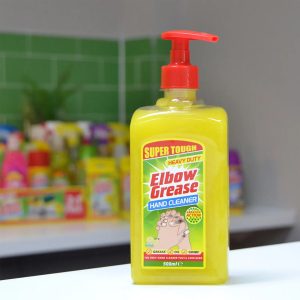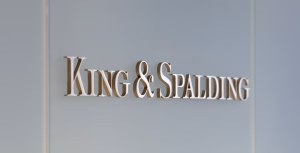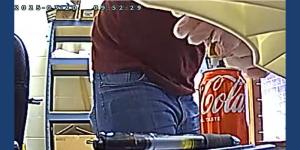Navigating Product Liability in France: Essential Insights for Manufacturers
In an increasingly interconnected world, understanding product liability laws is crucial for manufacturers operating in multiple jurisdictions. This article features insights from Sylvie Gallage-Alwis, a leading expert in products litigation, who sheds light on the current landscape of product liability in France. It highlights key legal frameworks, challenges faced by businesses, and emerging trends that shape the regulatory environment. With a focus on practical strategies for risk management and compliance, this piece serves as a vital resource for companies looking to safeguard their interests while ensuring consumer safety.

Sylvie Gallage-Alwis
Partner
Signature Litigation AARPI, 49 Avenue George V, 75008 Paris
Can you share your perspective on the current state of product liability laws in France and how they compare to other EU countries?
Product liability laws in France are the result of the implementation of EU Directives and Regulations relating to products. That said, given that Directives need to be transposed, some differences can exist between EU Member States. For instance, French law contains specificities that need to be known.
The most famous example is the Toubon Act, which imposes that all communications to French consumers be in French. This means that all labels, claims, packaging, terms and conditions, instructions for use, etc., have to be in French. In the event of a breach of this Act, companies can face fines but may also be required to implement corrective measures. More importantly, they could be criminally prosecuted on the grounds of misleading commercial practices. Another example is that France is very protective of the “Made in France” marking, and very specific conditions need to be complied with.
One should also be aware that some specific industries are highly regulated when it comes to claims on products, particularly the luxury and food industries, where French companies are very present and want to see their savoir-faire protected.
The complexity of our legal framework does not simplify the work to ensure that all regulations are complied with. All laws you read will come with Decrees explaining some of their provisions and even Ministerial Orders detailing aspects of the Decrees. In other words, never stop your analysis of laws.
What are the most common challenges companies face when defending against product liability claims in France?
The challenges we face in defending against product liability claims in France are quite similar to what companies will face in all jurisdictions in the EU under the upcoming New Product Liability Directive.
Given that there is no discovery/disclosure process in France, it is fair to say that Courts tend to shift the burden of proof onto companies to demonstrate a lack of defect rather than expecting the claimants to prove the existence of the alleged defect.
We have the possibility to have a Court-appointed Expert look into the technical root cause of the incident. However, experience shows that the current pool of experts is not familiar enough with products integrating technology, whether older or new. They are often retired engineers who are not up to speed with new technologies. This creates a lot of uncertainty regarding how they will understand a product and a complex issue, which can lead to disastrous results where they conclude there is a defect in the product when it is not the case, and then the Court follows their opinion, as a Judge would necessarily trust a technical Expert.
It is therefore very important to have a sophisticated team in place: experienced product litigators, third-party technical experts to assist said litigators, and the engineers of the company that is being sued.
The other main challenge is that when small claims are filed, the claim can fall under the radar of the legal team of the company that is being sued, and expert proceedings are not necessarily ordered (as they would cost more than the damages at stake). In that case, no proper defence is developed, and a decision can be handed down recognising a defect without any analysis of the product having been carried out.
How do you balance defending your clients while ensuring that consumer safety and regulatory compliance are upheld?
I do not know any company that does not want to make consumer safety a priority. As outside Counsel, our mission is to ensure that our clients understand the standards applicable in France to determine whether a product is compliant, and if it is not, whether it presents a safety risk. Indeed, it is important to note that it is not necessarily unsafe because a product is not compliant. Even if a product’s packaging is not in French and would hence not be compliant in France, this would not necessarily mean it is inherently dangerous.
It is fair to say that the final decision always lies with the client, but we always underline all the risks associated with a conformity obligation and/or a safety issue and work with our clients to find business-friendly solutions. I believe that lawyers should provide advice that goes beyond the law. They have to know the business and suggest ideas to mitigate exposure. When you do so, there is never a debate on whether something needs to be done.
What recent trends have you observed in French courts regarding product liability cases? Are there any significant rulings that have shaped the legal landscape?
In a context of increasing environmental awareness and requirements, actions relating to misleading claims based on “green” products are developing. This is commonly known as “greenwashing”.
Under French law, professionals that provide misleading information to consumers are punished under Article L. 121-2 of the French Consumer Code. The French regulator is actively investigating all environmental claims relating to products placed on the French market. To ensure that consumers are well informed about carbon neutrality claims, the Climate and Resilience Law of 22 August 2021 has amended Article L. 121-2 of the French Consumer Code to include false claims, indications, or presentations likely to mislead the consumer about the environmental impact of the product or the extent of the advertiser's environmental commitments in the definition of ‘misleading advertising’.
Misleading environmental claims may be subject to a fine of up to €300,000 (£1,500,000 for a legal entity). These amounts may be increased to 10% of the annual average turnover calculated over the last three years, or 50% of the expenses incurred to communicate on the misleading claim when the profit generated from the misleading practice exceeds the amount of the initial fine. The amount of this fine can be increased to 80% when it is a misleading environmental claim.
The Anti-Waste Law has also prohibited the use of certain types of claims, such as “biodegradable”, “compostable”, or “environmentally friendly”, or any other equivalent wording on all packaging, products, and advertising. Such claims are considered too vague and can therefore mislead consumers.
Another major trend that can be mentioned concerns the time during which one can argue that the product is defective. France grants buyers, in addition to the legal warranty of conformity of products purchased, the so-called “hidden defect” warranty. Pursuant to this warranty, if a defect that was not apparent at the time of sale appears afterwards, the buyer can, under specific conditions, file a claim against the seller, even after the legal warranty of conformity or any commercial warranty has expired. This issue of hidden defects is often linked to the question of the life cycle of products and how long they are supposed to last.
A two-year limitation period that is specific to actions under the warranty for hidden defects is first of all provided for by the French Civil Code. In this respect, Article 1648 provides that the buyer of a product must bring an action within two years from the day on which the defect was discovered.
However, a debate remains regarding the timeline after the sale occurred that would allow a consumer to raise the hidden defect argument. The French Supreme Court ruled in three decisions (nos. 20-10.763; 21-17.789; 21-19.936) that it considers the second applicable limitation period to be 20 years from the day of sale. As if it felt it had to positively justify this significant extension, the French Supreme Court stated that the purpose of the 20-year limitation period is to avoid a situation where the seller’s liability could be sought "indefinitely".
Case law will tell if the other criteria to have the seller’s liability recognised will be interpreted more strictly than they were up until now, given this significant extension of the time during which buyers can file a claim for alleged defects.
How important is risk management and product testing in building a strong defence for companies facing potential liability?
Having a risk management and product testing approach to any product design and launch has always been key in building a strong defence in case a company is sued on the grounds of a product defect. It will be even more important in the scope of the new Product Liability Directive, which should enter into force in 2026.
Indeed, the new Product Liability Directive seeks to rebalance the burden of proof between consumers and manufacturers by recognising the growing complexity of products. Unlike the 1985 Directive, which placed the burden of proof on the claimant, the new Product Liability Directive increasingly shifts this burden to manufacturers. This shift poses significant challenges for manufacturers, as they may be required to disclose relevant information and face various presumptions based on product complexity.
As such, the new Product Liability Directive introduces an obligation for manufacturers to disclose relevant evidence, aimed at correcting the imbalance of information between consumers and manufacturers. This new requirement emphasises that claimants should have access to the necessary evidence to support their claims, with the potential for disclosure serving private interests. However, this may also complicate proceedings, potentially lengthening cases and starting disputes over what constitutes necessary evidence.
Furthermore, manufacturers will have to present disclosed evidence in a manner that is "easily accessible and easily understandable", raising questions about the standards for this simplification. The vague criteria may lead to extensive litigation over what constitutes accessibility and comprehension, ultimately complicating the proceedings further. This requirement could burden manufacturers, who may find it challenging to simplify technical information without distorting its essential meaning.
More importantly, the new Product Liability Directive introduces indirect penalties for failure to comply with disclosure obligations, primarily through the reversal of the burden of proof in favour of the claimant. This can occur even if the defendant meets their disclosure requirements, particularly in cases of technical complexity. These new presumptions significantly shift the balance of power towards claimants, raising concerns about the fairness of the liability framework and its implications for manufacturers navigating claims.
To summarise, the new Product Liability Directive aims to create a presumption of defect in the product if the manufacturer does not disclose easily accessible and easily understandable data about its product, subject to the additional condition that the data do not demonstrate that the matter is excessively complex. Manufacturers must therefore now work hard on compiling data that will meet the new Product Liability Directive’s requirements, or it will be very hard to win cases in the European Union.
What role do cross-border disputes play in product liability cases, especially with the increasing global nature of commerce?
Cross-border disputes are very standard now when it comes to product liability cases. This is because it is very rare for a product to be sold in only one jurisdiction.
When it comes to a product safety issue, the cross-border approach exists from the very beginning with the Safety Gate platform, to which safety issues existing in more than one EU Member State should be reported so that all Member States’ regulators can be aware and take measures. It is very rare that an issue reported to Safety Gate does not also end up being reported to other regulators, such as the CPSC in the United States, for instance.
When it comes to product liability litigation, there is an increasing trend whereby if a claim is launched in the United States and a settlement agreement is reached, similar claims are launched in the European Union, in the hope of obtaining a similar settlement. The latest major example is the first class action based on the new Directive (EU) 2020/1828 on representative actions for the protection of the collective interests of consumers that has been launched against Philips over potential health risks from foam used in sleep therapy devices. The organisations and claimants’ Counsel behind such an action explain that they are doing so, inspired by the large settlement agreed upon by Philips in the United States.
The new Product Liability Directive may change the dynamic, with claims first being filed in the European Union rather than in the United States, given the new rules relating to the disclosure of documents as described in the answer to question 6. Indeed, claimants may prefer to first use a system whereby documents must be provided in an “easily accessible and easily understandable” manner rather than going through standard discovery in the United States, especially if the penalty for not complying with these requirements is that the product is deemed defective. Everything will depend on how the national courts of EU Member States react to this new legal regime.
What advice would you offer to manufacturers or businesses looking to mitigate the risk of product liability in France?
The main advice I would give, looking at the evolving regulatory landscape applicable to all products, is to document every step of the design, manufacturing, and after-sale process of the product. As the burden of proof is reversing against manufacturers, they should have their legal team think about how to create files, as soon as the product is at the R&D stage, that correspond to the type of files that would be created if litigation were to be launched. The legal team should think like litigators do, i.e. carry out due diligence and document steps taken all the time, in a clear and understandable way so that everything can be escalated quickly in case of a negative allegation against the company.
Communications with regulators should also be carefully considered. Let’s not forget that transparency acts are being implemented throughout the European Union, forcing regulators to share data with NGOs. Companies need to assume that, from now on, everything that they share with regulators may end up in the public domain. Therefore, again, it is crucial to have the proper paperwork, which includes why some technical decisions were made in light of the scientific knowledge of the time.
Finally, working on keeping all the data up to date is burdensome but an obligation that should not be overlooked.
About Signature Litigation
Signature Litigation is a specialised firm handling major high-value litigation, arbitration, and regulatory investigations. From offices in London, Paris, Frankfurt, and Gibraltar, it handles multiparty disputes stretching across multiple jurisdictions and acts for numerous worldwide manufacturers in all industries and financial institutions. Its Paris office comprises lawyers who trained at major international law firms and who are highly regarded for their expertise. Its commercial and product litigation practice is ranked Band 1 by The Legal 500.
The team is recognised for its work in complex, cross-border litigation; commercial, banking, corporate and post-M&A disputes; insurance/reinsurance; product liability and environmental litigation; as well as mass litigation and class actions.
About Sylvie Gallage-Alwis
Sylvie Gallage-Alwis heads the Products Litigation practice, which is one of the largest in the Paris market and involved in the most high-profile industrial risk pending cases in France. She is an Avocat à la Cour in France and a solicitor in England and Wales. Sylvie has over 15 years of experience in complex disputes linked to products, namely product liability, product safety, toxic tort, mass litigation/class actions, regulatory compliance, and the environment. She represents manufacturers across industries that include life sciences, automotive, electronic products, cosmetics, energy, and food.
Sylvie Gallage-Alwis
Partner
Signature Litigation AARPI, 49 Avenue George V, 75008 Paris
Tel: +33 1 70 75 58 00
Email: sylvie.gallage-alwis@signaturelitigation.com





















